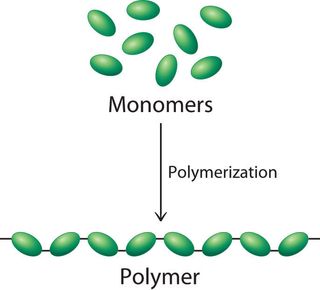Polymers in Construction: Stronger, Less heavy, and Much More Durable
Polymers in Construction: Stronger, Less heavy, and Much More Durable
Blog Article
Discovering the Varied Applications and Benefits of Polymers in Different Industries
Polymers, with their varied variety of homes and functionalities, have actually become vital in various sectors, each gaining special gain from their application. Polymers. From improving safety and performance in the automotive market to revolutionizing clinical gadgets in the medical care sector, polymers play an essential function. Furthermore, their green nature is altering the landscape of sustainability methods. As we explore the midsts of polymers in electronic devices, we discover sophisticated technologies, while their architectural stability changes the world of construction and framework. The prevalent impact of polymers throughout sectors is a testament to their flexibility and adaptability, shaping the future of countless sectors.
Automotive Industry Applications
Polymers play an essential function in improving the performance and resilience of different parts within the automobile field. One popular use of polymers in the automobile market is in the production of light-weight elements.

Medical Care Industry Advantages
In different healthcare applications, the benefits of making use of polymers are extensively identified for their varied variety of helpful buildings. Polymers play an essential role in the medical care market as a result of their versatility, biocompatibility, and cost-effectiveness. Among the primary advantages of polymers in healthcare is their ability to be tailored to particular requirements, such as versatility, resilience, and biodegradability, making them excellent for a variety of medical applications.
Polymer-based materials are thoroughly made use of in medical devices, such as catheters, implants, prosthetics, and medicine distribution systems, due to their biocompatibility and capacity to simulate all-natural cells. These materials can lower the risk of allergies or rejections, enhancing individual security and outcomes. Furthermore, polymers are light-weight, making them suitable for wearable clinical devices and making sure individual comfort.
Moreover, polymers make it possible for the growth of innovative therapy techniques, such as hydrogels for tissue engineering and nanocomposites for targeted medicine delivery. Their simplicity of handling and sterilization makes them essential for maintaining high criteria of hygiene in health care settings. Overall, the diverse advantages of polymers add considerably to developments in clinical innovation and individual treatment.
Ecological Advantages of Polymers

Furthermore, polymers can contribute to power savings because of their light-weight nature. In sectors such as transport, light-weight polymer materials can aid reduce fuel intake and greenhouse gas emissions. In addition, polymers can allow the advancement of energy-efficient items such as insulation products that boost energy preservation in buildings.
In addition, polymers play a vital role in lowering water air pollution. As an example, using polymer-based filtering systems can properly get rid of contaminants and impurities from wastewater, safeguarding water resources and environments. Overall, the environmental benefits of polymers make them important properties in promoting sustainability and environmentally friendly techniques across various industries.
Polymers in Electronic Devices and Modern Technology
Taking into consideration the enhancing need for innovative and sustainable solutions in modern industries, the assimilation of advanced polymer technologies in the world of electronic devices and technology has actually become a pivotal approach for driving performance and efficiency. Polymers have changed the electronics sector by allowing the manufacturing of click to read more lighter, more adaptable, and sturdy electronic devices. From mobile phones to medical tools, polymers play an essential duty in improving product layout and capability.
One significant advantage of polymers in electronics is their insulating buildings, which help shield fragile digital components from environmental factors and electric disturbance. In addition, polymers are essential in the growth of versatile display screens, wearable innovation, and published electronics, supplying unlimited possibilities for developing clever and interconnected tools.
Furthermore, using polymers in digital product packaging has actually brought about advancements in miniaturization and thermal administration, enhancing the overall efficiency and integrity of electronic systems. As technology remains to evolve, the versatility and adaptability of polymers will definitely drive additionally advancement in the electronics market, forming the future of technology.
Duty of Polymers in Building And Construction and Facilities
Polymers supply countless benefits in the building industry due to their adaptability, resilience, and cost-effectiveness. One essential duty of polymers in building is their usage in finishings and sealers, giving protection versus environmental variables such as wetness, UV radiation, and rust.
Furthermore, polymers play a critical duty in sustainable construction practices by enabling the advancement of energy-efficient frameworks. Shielding materials made from polymers aid control interior temperature levels, decreasing the need for home heating and cooling systems and ultimately lowering power consumption. Furthermore, making use of polymer-based compounds in facilities jobs such as bridges and roadways boosts their longevity and reduces maintenance expenses. Generally, the incorporation of polymers in building and construction and framework displays their substantial effect on modern design techniques.
Conclusion
In conclusion, polymers play a critical role in Discover More different industries such as automotive, health care, ecological, electronics, and building. From improving gas efficiency in cars to enhancing clinical devices, polymers provide numerous benefits.
Report this page